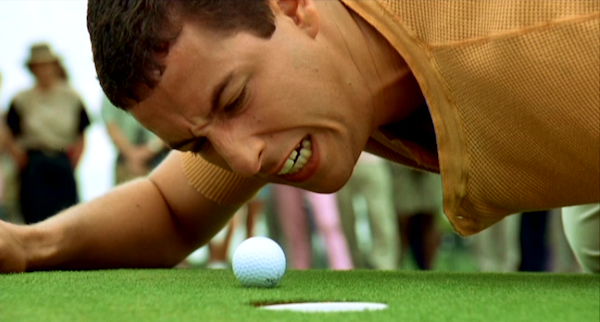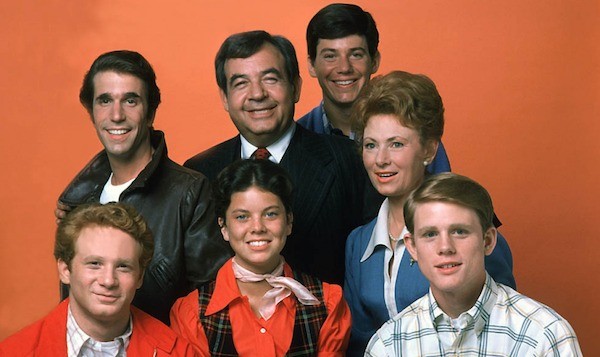Compare courses from top Australian unis, TAFEs and other training organisations.
6 Ways to Be Happier Right Now!
If your new year’s resolution is to be happier this year, it’s one thing to say it and another to make it happen. We’ve consulted with happiness expert Dr Timothy Sharp to come up with six easy ways to make this year your happiest yet.
Marni Williams
Dec 17,2013
I chat to Dr. Timothy Sharp, Chief Happiness Officer at the Happiness Institute and lecturer in Positive Psychology at RMIT School of Health Sciences, to find out what it takes to give our serotonin levels a much-needed boost.
1. Choose to be happier
Dr Sharp, who is also a clinical psychologist, explains that becoming happier starts with making a concious choice to improve mood.
‘To begin with, make a choice to be happier. Setting happiness as a goal is a great first step, but then it’s important to ensure that you do the right things to make this a reality.’
So what are these ‘right things’? Sharp suggests:
- Set a number of specific, meaningful life goals
- Develop a health program
- Foster an attitude of gratitude and optimism
- Build positive relationships
- And have fun!
2. Set some goals that aren’t about money
Who ever got anywhere without setting themselves a goal and a deadline? I for one would probably never finish this article without them. But to be certain that your goals are actually going to lead to happiness, make sure they relate to the things that make you most content.
This may surprise some, but money alone doesn’t keep us happy in the workplace. The third annual Stress and Wellbeing Survey conducted by the Australian Psychological Society (APS) has shown that enhanced wellbeing and reduced stress are related to ‘supportive leadership, recognition and feedback, feeling valued and cared for by employers, clear role definition, the prioritisation of health and safety and support for family issues’.
Similarly, companies with the most psychologically healthy workplaces provided reward and recognition, communicated expectations and demonstrated the link between an employee’s role and the bigger picture.
So if you really want to be happy, first concentrate on goals that will enhance your wellbeing, whether that be through career change, professional development or a new job, and make sure you find an environment where your hard work will be noticed.
3. Get healthy – inside and out
Dr Sharp certainly isn’t the first person to link health and happiness, but for many, health starts to lag on the priority list. The Sydney Morning Herald’s Wellbeing Index, published each quarter, has suggested that the cost of our health problems is so big that if you halved Australia’s obesity rate, it would have an effect similar to large-scale economic improvement.
Mental health is a key component here, with the APS survey showing workers are presenting more depressive symptoms and anxiety than in the previous two years. Alarmingly, the World Happiness Report suggests that mental health problems ‘are the biggest single cause of disability and absenteeism, with huge costs in terms of misery and economic waste’.
Unsurprisingly, the workplace is one of the main contributors to unhappiness, with 47 per cent of this year’s respondents naming the workplace as the main source of their stress. Workplace stress is also the second most common cause of workers’ compensation claims after manual handling.
Being healthy and less stressed go hand-in-hand and it’s the basic formula really: rest, nutrition and exercise. Take a long hard look at your routine – write it all down if you have to – and find the gaps you can fill with healthier activities. It will help your body and give your mind the release it needs.
4. Find some perspective
Dr Sharp talks about fostering an attitude of gratitude and optimism, but we can’t do that if we focus on our problems. There’s no point talking about happiness without first appreciating that you’re doing better than a lot of other people out there. Here’s the evidence: Australia was ranked first in the world for median adult wealth by Credit Suisse’s Global Wealth Report last October, and we were second only to Norway on the United Nations Human Development Index – a measure of income, health and education.
The UN’s World Happiness Report, published in September last year, even gave Australia a happiness mark of 7.35 out of 10. This is well above the global average and outscored our New Zealand neighbours, the US and UK. In fact, we’re only ranked behind Canada and eight European nations – so we should all thank our lucky stars to be living here.
5. Practise the art of compassion and generosity
We all know that successful relationships are a matter of give and take, so do as Dr Sharp says and ‘build positive relationships by doing good to and for others: practise compassion, caring, thoughtfulness and generosity.’
Helping colleagues does more than increase morale; it allows you the satisfaction of imparting knowledge and fosters a culture that will usually come back your way, too. According to Sharp, the same goes for dealing with difficult people.
’What we need to remember in these situations is that although we can’t change or get rid of all those negative people with whom we don’t get along, we can change how we think about and/or respond to them’.
It’s in your hands to not let things affect your happiness – so the next time a colleague fails to play with the team, don’t let it stop you from being a generous and understanding colleague.
6. Don’t take yourself too seriously

When I asked Dr Sharp to point out the biggest barrier to achieving happiness in our careers, his answer was surprising: ‘probably taking ourselves too seriously’. But he didn’t mean we should all start slacking off; he was referring to our tendency to play it safe and not just go for it!
We all know at heart that work should be enjoyable, that we should feel good at what we do and that we’re contributing in some way – but if your job isn’t setting your world alight then it’s easy to simply focus on getting ahead without taking the time to enjoy the journey, as they say.
Work doesn’t only need to be about challenges and pushing yourself – it’s ok to do something that comes easily to you, or that you have a ball doing. Maybe this is the year you should take a chance on your hobby or passion, just as Dr Sharp says, ‘Remember, always, that if you can’t do what you really love, then find ways to love what you do or… leave!’
Know someone who wants to be happier this year? Share this article with them!
Helping people |
Social work Security Natural therapy Education |
Community services Beauty therapy Health OH&S |
Expressing yourself |
Writing Photography |
Digital media Design Arts |
|---|---|---|
Making a sale |
Real estate Marketing |
Retail |
Being a leader |
Project management Government |
Business |
Looking at the details |
Accounting Finance |
Logistics Law |
Getting to the bottom of things |
Science Psychology |
Criminology |
Building things |
Engineering Building & construction |
Architecture |
Getting out of the office |
Agriculture Environmental |
Hospitality Tourism Sports management Fitness |
About the author
Marni Williams provides tips on career progression, job applications, and educational pathways at Career FAQs.









